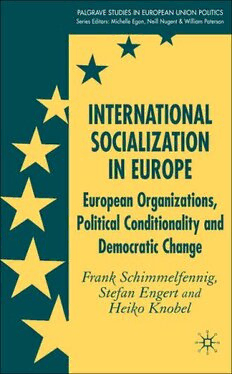
International Socialization in Europe: European Organizations, Political Conditionality and Democratic Change (Palgrave studies in European Union Politics) PDF
308 Pages·2006·0.939 MB·English
Most books are stored in the elastic cloud where traffic is expensive. For this reason, we have a limit on daily download.
Preview International Socialization in Europe: European Organizations, Political Conditionality and Democratic Change (Palgrave studies in European Union Politics)
Description:
Since the end of the Cold War, Europe has been the stage of a large-scale project of international socialization. European regional organizations such as the OSCE, the Council of Europe, NATO, and the EU assumed the task of inducting the transition countries to the liberal-democratic standards of the Western international community. How and when have Western organizations had an impact on the transformation of Europe? Why have they been successful in some countries but not in others? How can we adequately analyze and theorize international socialization in Europe? In a comparative analysis of nine countries, the book tests theoretical conditions and mechanisms of international norm promotion and shows that successful socialization has been a result of credible EU and NATO membership conditionality as well as moderate political costs of compliance for the target governments.
See more
The list of books you might like
Most books are stored in the elastic cloud where traffic is expensive. For this reason, we have a limit on daily download.
